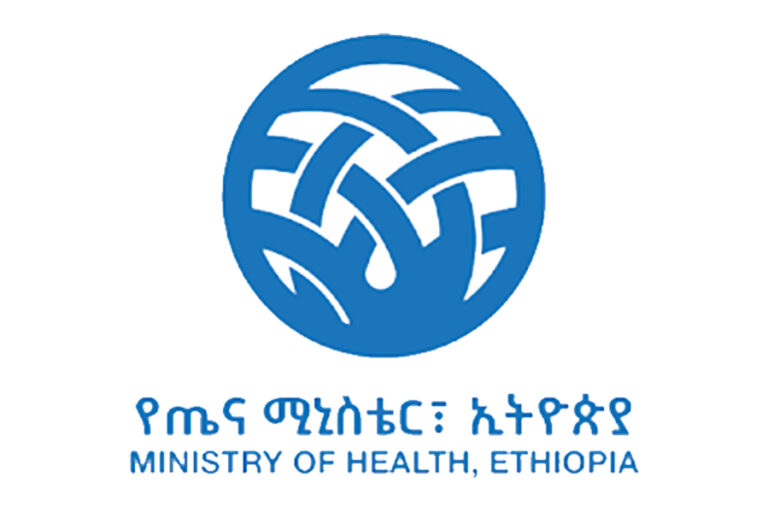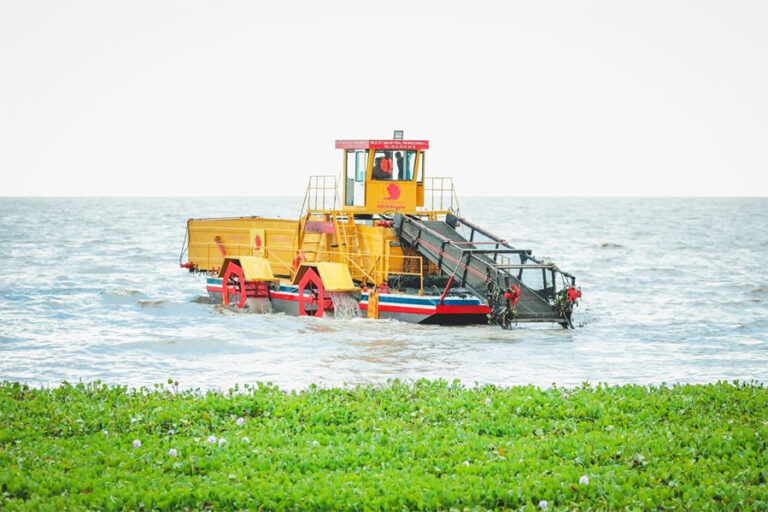As the third wave of the pandemic across the globe hit, COVID-19 cases and deaths have dramatically increased in Ethiopia to which the government has started to consider re-starting public isolations for infected cases. Despite the efforts of all parts of the stakeholders, the new cases are alarmingly increasing. Still, some measures have been declining due to the hectic nature of the stakeholders day to day activities. Currently, Ethiopia confirmed that COVID-19 cases are reported in all parts of the country.
Currently, isolation centers are dedicated for patients who need oxygen and ventilation, however as result of the increasing number of cases and critical patients, the Ministry of Health has decided to re-organize public isolation centers for the infected patients. “Also the fear of the high spread of the new variants of the pandemic in the society which is still unidentified behavior has forced the ministry to re-establish Isolation centers,” experts explain.
A year after Ethiopia recorded its first case of Covid-19; the virus has been spreading at an alarming rate. The number of people entering the intensive care unit (ICU) and the number of deaths have increased in the last few weeks. While the virus is spreading across Ethiopia, shortages of oxygen supply have been recorded in different locations across the country.
As of April 23, 2021 Ethiopia has reported 249,292 positive cases which is the fourth highest number in Arica and has also recently reported 1303 new cases with a cumulative total death of 3,511 in the country.
The public health preparedness and response during early outbreak used different risk communication and community engagement activities during the early outbreak. The government had been implementing strict and stringent contact tracing after the first case reports and measures such as isolation as well as care, obligatory quarantine, and treatment were provided. Its recalled that the government mobilized the public universities’ dormitories and other buildings to increase the capacity and number of quarantine centers to over 50,000 beds. The government also established additional isolation centers with a total of 15,000 beds. Moreover, the government arranged several treatment centers with a 5000-bed capacity.
On similar news, in April 21, 2021, the International Clinical Laboratories (ICL) launched the free Covid-19 testing program for 50,000 people in Tigray. The Laboratory kicked off the massive campaign earlier this week in collaboration with Tigray Health Bureau and Mekelle Hospital after securing permission from Ethiopian Public Health Institute (EPHI) and Federal Ministry of Health (FMOH).
The testing campaign is expected to reach other health facilities in the region, and in addition to the Public Health Facilities in Tigray, ICL is partnering with other private health facilities to offer free Covid-19 testing for individuals who cannot afford the test.
Vaccine expiry dates
In other development the World Health Organization (WHO) has urged African countries not to destroy Covid-19 vaccines that may have passed their expiry date.
Countries have been told to keep hold of them and wait for further guidance.
The appeal comes after Malawi and South Sudan said they would destroy more than 70,000 doses of the Oxford-AstraZeneca jab because they expired in mid-April.
But the Africa Centres for Disease Control (Africa CDC) said it had been assured the doses were safe to use.
“Africa CDC subsequently received concerns regarding the 13 April 2021 expiration date, and took swift action to resolve. The Serum Institute of India, from which the vaccines were procured, advised and sent a formal letter indicating an approved “shelf-life extension” for an additional three months, through 13 July 2021,” it said in a statement.
Many vaccines can be used up to 36 months after manufacture, but because Covid-19 jabs are so new there is not enough data to prove their effectiveness over longer periods.
The final decision on whether to use expired jabs rests with national drug regulators.
The rollout of coronavirus vaccines across Africa has been slow, partly because of supply issues and wider scepticism about the jab.
“My appeal to member states is: if we are doing our part to mobilise these vaccines, you do your part and use the vaccines,” John Nkengasong, director of the Africa CDC, told a news conference on Thursday.
Malawi said it planned to destroy more than 16,000 doses of the AstraZeneca vaccine, which were manufactured by the Serum Institute of India (SII), because their expiry date was 13 April.
South Sudan, meanwhile, planned to discard some 59,000 doses for the same reason.
The vaccine doses were donated to 13 African countries through a partnership between the African Union (AU) and the telecommunication company MTN Group.
The AU bought one million doses of the AstraZeneca vaccine from South Africa, which had stopped using the jab amid doubts over its effectiveness against a new variant that had become dominant in the country.
The Africa CDC sent the doses to countries in late March, a few weeks before they expired.
MoH considers re-starting public isolations for infected cases
BGI Ethiopia joins the road to remove Inboch from Tana Lake
BGI Ethiopia joins the road to remove Inboch from Tana Lake by handing over 5.8 million birr worth of cutting machine. BGI’s cutting and removal machine is made by local experts to remove the weed invading Lake Tana in Amhara region.
On Monday April 19, 2021 BGI delivered the machine developed by Mulat Industrial Engineering to Amhara Regional Government in the presence of senior officials and invited guests.
Lake Tana, which is connected to the Grand Renaissance Dam, is a source of income for the farmers around it. Lake Tana is also one of UNESCO’s World Heritage Sites, although it has been infested with weed since 2003. Through different effort 85 percent of the lake is currently free from the weed however as experts suggested unless efforts are continued to fully removed the weed it will come back.
GERD fundraising set to continue
The national council for the coordination of public participation for the construction of Grand Ethiopian Renaissance Dam has asked Ethio telecom for the prolongation of the third round of fundraising drive to support the construction of the mega hydro dam.
On Thursday April 22, 2021 Ethio telecom handed over 122.5 million birr to the Ethiopian Electric Power which was collected through the 8100 short SMS to support the construction of the great Ethiopian renaissance dam.
Through its third-round fundraising Ethio telecom has collected 122,467,676 birr within one year starting from March 2020 up to March 2021 through short SMS from its customers.
A remarkable aspect of the project is that it is 100 percent funded locally, through the platform that Ethio telecom provided via the 8100 short SMS for three rounds starting from August 2014-March 2015 (first round), from October 2015 to April 2016 (second round) and the last round from March 2020 to March 2021.
In its three rounds Ethio telecom has collected more than 252 million birr of which 80 million was in the first round, 49 million in the second and the rest in the third round.
The Grand Ethiopian Renaissance Dam (GERD), is around 70% complete and is expected to need 5 billion dollars to be completed and promises to provide much-needed electricity for Ethiopia’s 105 million people.
Even critics of the Ethiopian government have the same stand with the government when it comes to Ethiopia’s Grand Renaissance Dam, which is a testifying factor to its importance.
The CEO of the telecom company, Freihiwot Tamiru, gave the cheque to Ashebir Balcha, CEO of the state-run EEP, and head of the Grand Ethiopian Renaissance Dam (GERD) project.
Of course, this initiative was as a lack of international finance for projects on the Blue Nile River due to Egypt’s alleged persistent campaign to maintain presumed hegemony on the Nile water share which then forced Ethiopia to finance the project from within.
“Since the beginning of the construction, Ethiopians have contributed a total of 15 billion birr via various ways including buying Dam bonds and direct support,” said Aregawi Berhe, head of the National Council for the coordination of public participation for the construction of GERD, adding, “Since the construction is fully funded by the locals it is a reflection of our independency and sovereignty.”
Aragawi also said Ethio Telecom has accepted his office’s request for the continuation of the fundraising campaign via SMS-8100 for the next six-month.
ESLSE to unlock shortages by purchasing new containers
The Ethiopian Shipping and Logistics Services Enterprise (ESLSE), which has been facing hindrance of cargo boxes, is on the process of doubling its owned containers number to tackle the shortage. Meanwhile, public enterprises and government offices are alleged for the hoarding of its property.
The logistic giant and sole multimodal operators, ESLSE disclosed that it is on the process of buying new containers to expand its containerized cargo operation.
Roba Megersa, CEO of ESLSE, told Capital that there is a shortage of containers for different reasons including the current global challenge that is related with COVID 19 which has slow down the global economy.
He said that in order to recover from the challenge and boost its capacity, ESLSE is on the process to procure 3,000 twenty feet containers (TEUs). “As we all know, the Ethiopian procurement process and access to foreign currency has its own complication but we are trying our best to added new containers,” he remarked.
The Bid was floated on March, 2020 and 22 companies bought the bid document and in the end seven of them participated.
Wondimu Daba, Deputy CEO for Corporate Service at ESLSE, told Capital that the bidding process has passed three processes, namely; preliminary, technical and financial qualifications.
On the three evaluating steps, five companies had met the preliminary step and two of them passed the technical specification to compete on the financial evaluation.
“SMC, the company from China and coming via Ethiopian agent Tsemex Global Enterprise, has qualified on the financial offer that which we can’t disclose the amount since the processes is yet sealed,” the Deputy CEO said.
Wondimu said that the procurement process has been delayed following the bid winner compromising to deliver the product with the reason mentioned as the price increment on steel products, “we have been under discussion with the company to deliver the product as per the award, while it is unable to meet the commitment.”
He added that the enterprise had given ample time for the company to come up with the required result, “because of the delay the enterprise has possessed the ten percent performance bond that the company gives as a guarantee.”
Wondimu reminded that despite the award being given on August 20, 2020 some delays has occurred in relation to the approval of the letter of credit.
“Now we are on the process of developing another round bid document to call bidders for the second round due to the failure of first procurement process,” he said updating on the status regarding the procurement of 3,000 containers.
The new bid is expected to be floated in the first week of May.
Container shortage
In relation to the COVID 19 pandemic and lockdown, the global container shortage has become a challenge for the logistics sector, even though Ethiopia is not under lockdown because of the coronavirus the sector is affected by clients, who hoard containers.
The number of ESLSE containers or others that was managed on their behalf was controlled for years by clients like the infamous METEC.
Roba stated that there are very huge amount of containers hoard by public enterprises.
“We don’t know how to retrieve the property and some of them may not provide service. The only thing we shall do is cut the demurrage, but when we do that we have to settle the depreciated value (DV),” Roba said.
Most of the containers that are on the hand of METEC for years are leased and have the DV settlement. Partner shipping lines are expecting the DV from ESLSE, which we are also looking from METEC. “It has become strange since the settlement shall take huge amount of foreign currency,” he added.
Private clients are taking containers on deposit modality, while METEC took the hundreds of containers that are stored in different sites like Yayu Fertilizer project and other areas without similar guarantee that accrued the settlement amount.
According to the CEO, similarly there are still other public institutions and enterprises which are not returning containers on time.
He said that the container management in the country is very complicated. “For instance; meanwhile the dry port facility is owned by ESLSE, Customs Commission act like it owns and controls the containers. The Commission is using the containers as warehouse for staffed cargos and if it sold out the goods on auction it took the major share for itself, while ESLSE is supposed to settle the container demurrage,” he added.
Roba explained if ESLSE delayed to return the containers it may affect its relation with partners.
“With all this problems the movement of project cargos, COVID 19 related goods and basic commodities that included on the containerized cargo are maintained in good hand, while the containers shortage still affects,” he added.
“Meanwhile, currently, we have maintained a direct regular fleet to Chain that is weekly with MSC, and expanding lifting capacity at ports; the container constrain has become incident. Meanwhile, we have surpassed the previous containers cargo handling in terms of volume. The impact is not small and it forced us to meet 85 percent of the target,” he amplified.
Currently, ESLSE has about 2,940 containers with two common sizes of twenty or forty feet; of which 2,398 twenty feet containers (TEUs), 184 forty feet high cube (HCs) and 358 forty feet general purpose (GPs) containers.
Besides owning containers with different size, ESLSE is leasing containers as the business trend in the logistics sector. Based on that, it currently manages 49 TEUs and 500 HCs on lease arrangement.










